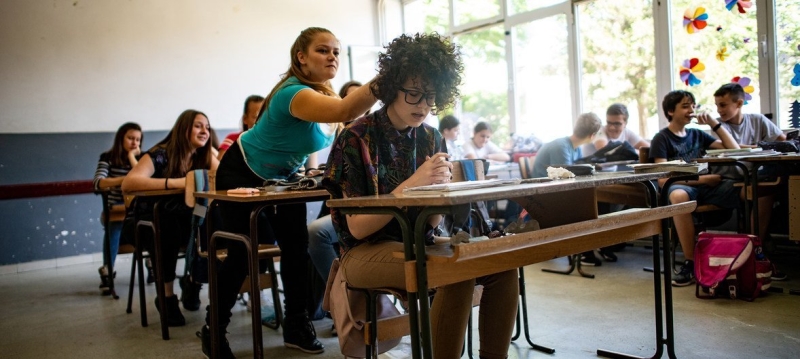
A mock bullying incident is staged during an anti-bullying workshop in a school in Kosovo. Bullying in schools: UNESCO suggests solutions Culture and education
Almost one in three students worldwide has been physically bullied at least once a year, and 10 percent of children have experienced cyberbullying, or “cyberbullying,” UNESCO said on Wednesday. The organization is calling for more action to protect children and adolescents from physical, verbal and psychological aggression.
The report, published ahead of the International Day against Violence and Bullying at School, including Cyberbullying, highlights the critical role of public policies and cross-sectoral collaboration in this area, noting that only 32 countries have a comprehensive legal framework to address the issue.
Making Schools Safe
“Every child should feel respected, accepted and safe at school so that they can learn and thrive,” said UNESCO Director-General Audrey Azoulay.
“The International Day is intended to galvanize collective action to step up efforts to combat violence and harassment in education,” she added. she.
Bullying and harassment at school are common. They negatively affect children’s academic performance and mental health. Victims of bullying are twice as likely to suffer from loneliness, insomnia, and suicidal thoughts.
Girls and LGBT people are most often victims
School violence disproportionately affects certain groups and can be linked to factors such as gender, sexual orientation, and socioeconomic status. Girls are more likely to be victims of bullying. Up to a quarter of adolescent girls experience gender-based violence, and up to 40 percent of these incidents occur at school.
42 percent of LGBT people also experience teasing, bullying and threats at school, mostly from other students.
How UNESCO supports countries
UNESCO has prepared a series of recommendations and guidelines for national authorities and teachers.
UNESCO also supports many projects on the ground, putting its recommendations into practice, particularly in Africa and Asia through the Respectful Relationships programme.
This initiative helps prevent gender-based bullying by encouraging students to treat each other with respect and teaching victims how to effectively seek help. UNESCO has trained more than 20,000 teachers in West Africa to create violence-free schools.
Last month, UNESCO launched a new project dedicated to the mental health of schoolchildren in France. The two-year project, created jointly with the country and the European Commission, aims to strengthen the skills of educational teams in this area and create support networks for students, bringing together teachers, caregivers, health personnel and social services.
UNESCO also emphasizes the importance of developing school curricula that teach children to build dialogue and respect each other.
About the International Day
UNESCO established the International Day against Violence and Harassment in Schools, including cyberbullying, in 2019. It is celebrated every first Thursday in November.
The day is intended to draw attention to the problem of violence and bullying in schools and to help find ways to solve it.
